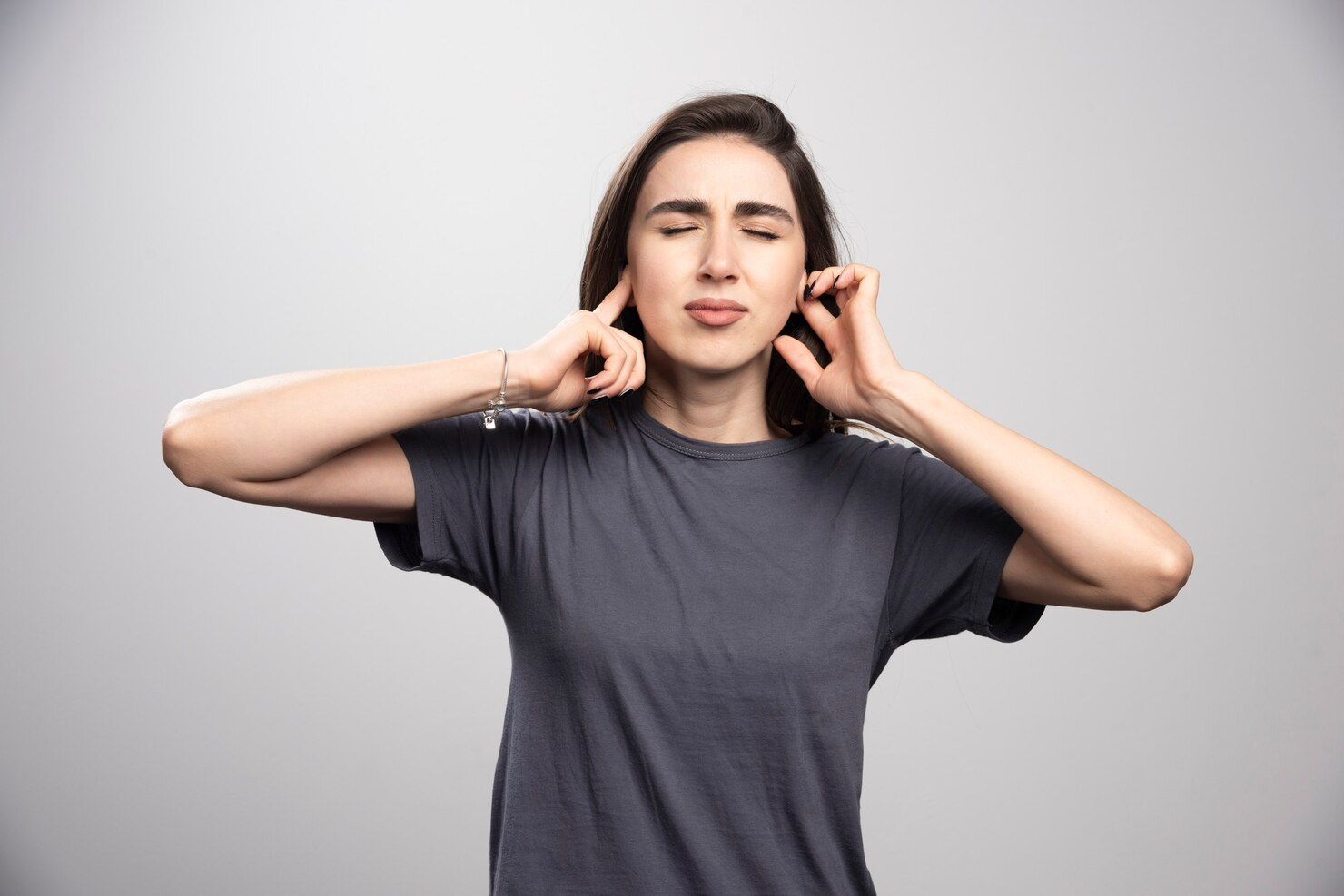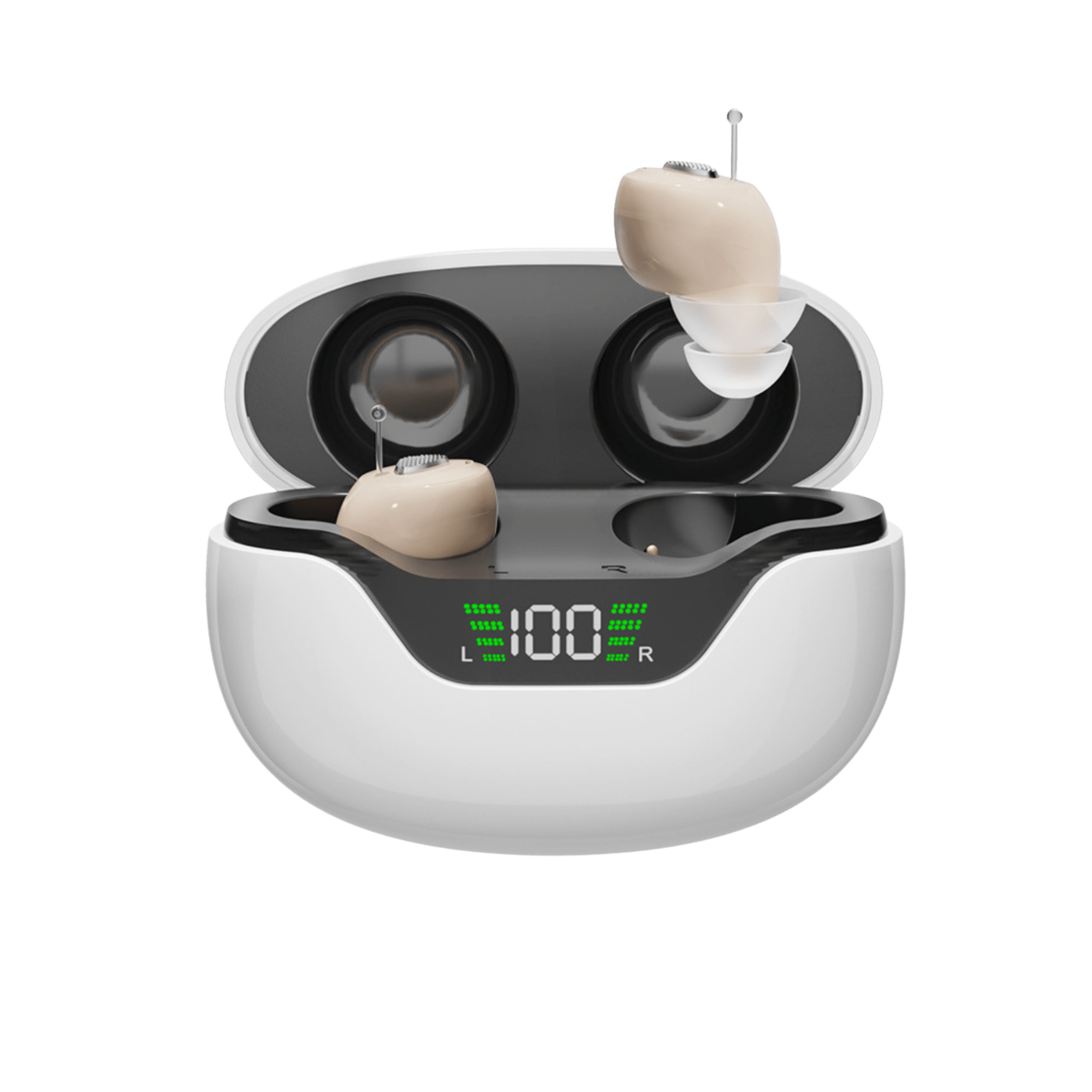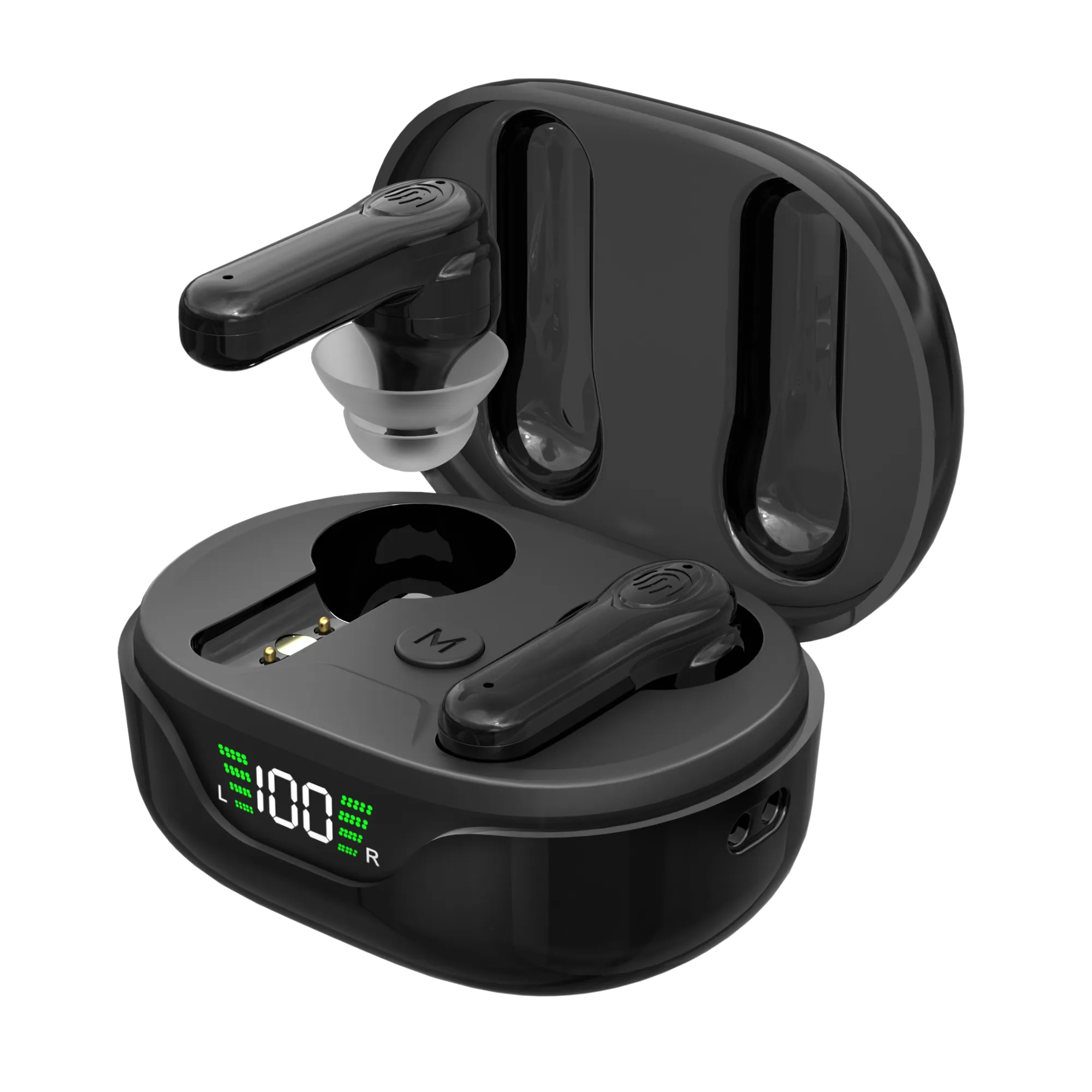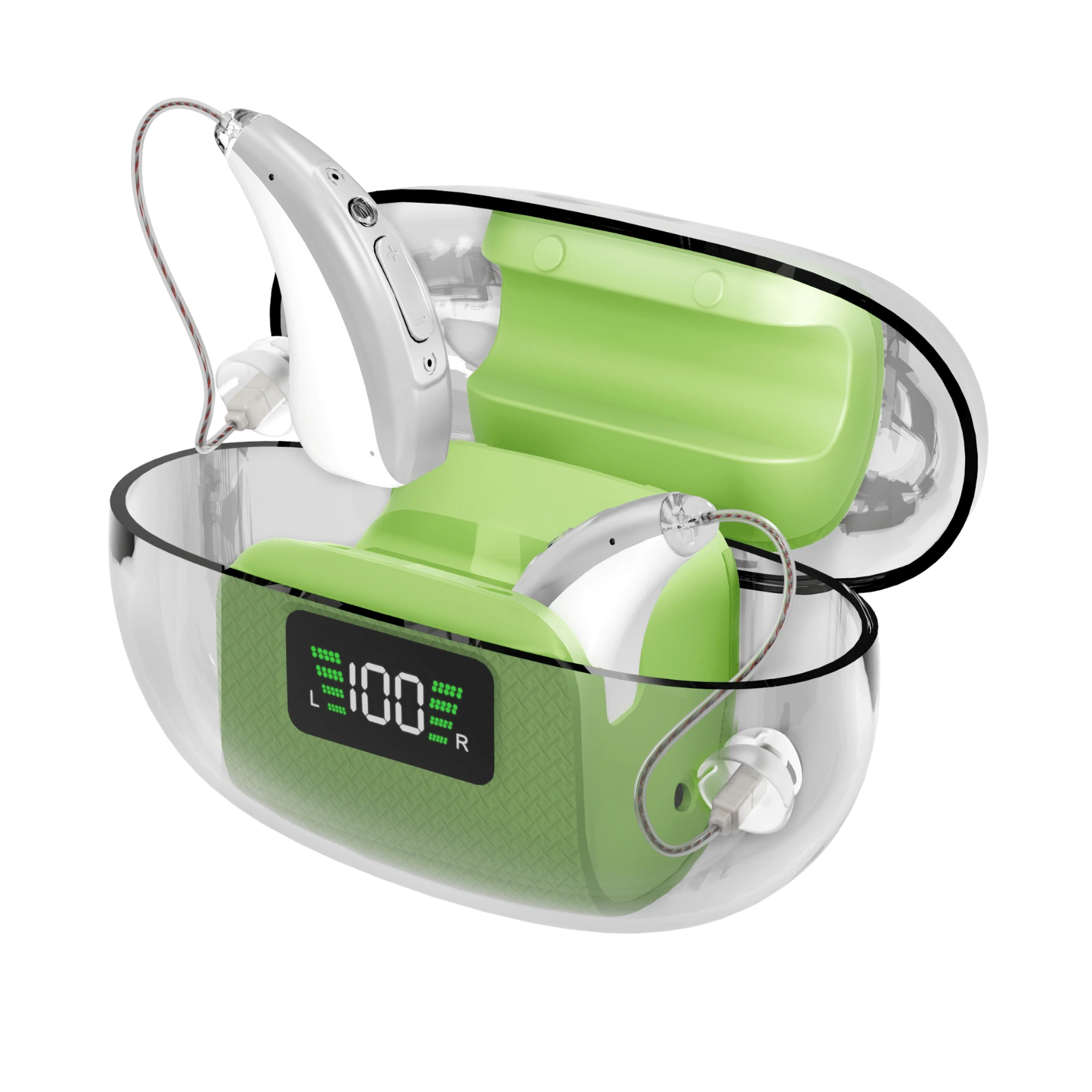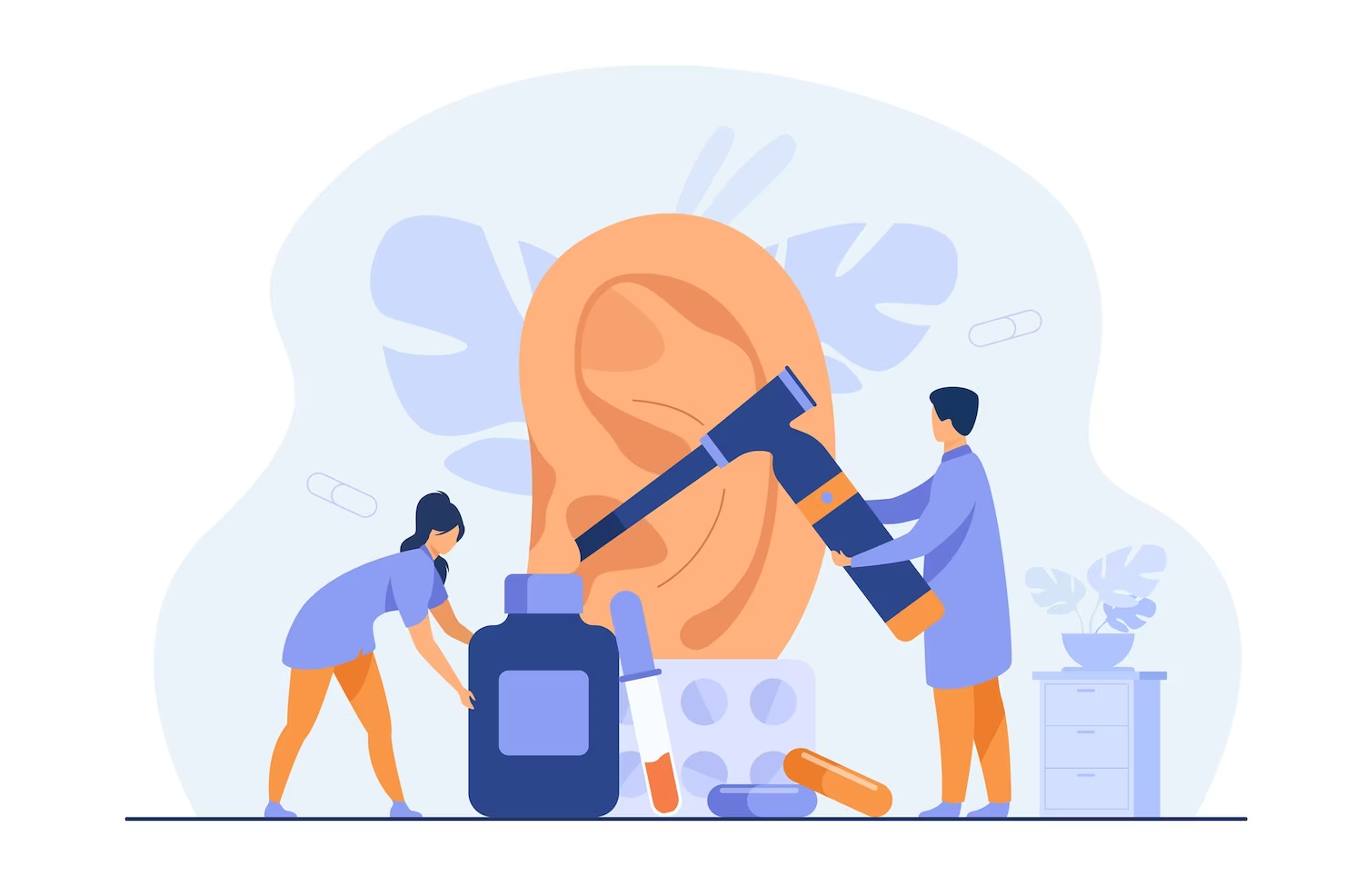Millions of people around the world live every day with tinnitus, a disease that is often marked by a constant ringing, buzzing, or humming sound in the ears. Tinnitus can have a big effect on quality of life because it can have many reasons and is often hard to treat. This piece will talk about how hearing aids can help with tinnitus. It will look at their possible benefits and give helpful advice to people who are looking for relief from this condition.
Understanding Tinnitus
Before we talk about how hearing aids might help with tinnitus, let's define what tinnitus is. Tinnitus is a subjective noise sense that can be heard in one or both ears as ringing, buzzing, whistling, hissing, or humming. It is a sign, not a disease, and can be caused by things like loud noise, certain medicines, earwax buildup, and hearing loss that comes with getting older.
Tinnitus can be slightly annoying or very upsetting, making it hard to concentrate, sleep, and enjoy life in general. There is no one fix for tinnitus, but there are many ways to deal with it, such as using hearing aids, that can help lessen its effects.
Tinnitus and Hearing Aids
Hearing aids are mostly made to make sounds louder, which helps people with hearing loss hear better. But how will they help with the ringing? Let's take it apart:
Taking Care of Hearing Loss: Tinnitus and hearing loss often go together. Many people may not even know they are losing their hearing because noise is usually more noticeable. Hearing aids can help in these situations by making background noise louder and making it easier to hear. This can often take your mind off the sound of tinnitus and help you feel better.
Sound Enrichment: Many current hearing aids have sound generators or "tinnitus maskers" that can help improve the sound. These maskers make soft sounds, like white noise or sounds of nature, that help cover up or "blend" with the noise of tinnitus, making it less obvious.
Cognitive Distraction: Hearing aids can help change the focus away from the internal noise of tinnitus by making it easier to hear sounds from the outside. This makes the noise seem less intense and annoying.
How it works scientifically
Several studies show that hearing aids can help with tinnitus. Research released in the Journal of the American Academy of Audiology showed that 60% of people with tinnitus and hearing loss at the same time who wore hearing aids felt at least some relief, and 22% said they felt a lot better.
Also, a 2018 study released in Trends in Hearing found that using hearing aids regularly led to tinnitus getting less bad over time.
It's important to remember, though, that hearing aids and tinnitus affect people in very different ways. Some people may feel a lot better, while others may only notice small changes. The result can be affected by how bad the tinnitus is, how much hearing loss there is, and how the person feels about it.
How to Get Started with Tinnitus Hearing Aids
If you want to use hearing aids to deal with tinnitus, you should talk to an audiologist or other hearing health provider. They can give you a thorough exam to find out if you have any kind of hearing loss and if hearing aids could help you deal with your tinnitus.
If hearing aids are suggested, your hearing care provider can help you choose the right kind for your needs. Many modern hearing aids are made to help with tinnitus. For example, they may have built-in sound generators or the ability to connect to smartphone apps that offer tinnitus treatment sounds that can be customized.
Conclusion
It can be hard to live with tinnitus, but you're not alone, and there are things you can do to help. Hearing aids seem like a good idea because they can help with both tinnitus and hearing loss at the same time. They can also cover up or distract from the annoying sounds of tinnitus.
But it's important to keep in mind that tinnitus is different for everyone. Hearing aids can be very helpful for some people and not so helpful for others, and they may be just one part of a larger plan to deal with tinnitus. Other methods, like cognitive-behavioral therapy, mindfulness meditation, and making changes to your lifestyle, can also be very helpful.
As you deal with tinnitus, remember how important it is to get help from a professional. An audiologist or other hearing health professional can help you find the right tools and strategies for your case by giving you personalized advice and support. Hearing aids are getting better, and people are learning more about tinnitus, which gives them hope for better ways to deal with this often frustrating disease.
Even though tinnitus might be a part of your life right now, new treatments like hearing aids show hope for a future where it will be much less important. Keep up with the latest news, think carefully about your options, and always talk to a hearing health professional for the best results.
Living with tinnitus can be hard, but keep in mind that you can get help and find peace. You can deal with tinnitus and improve your quality of life with patience, professional help, and the right tactics and tools, such as hearing aids.
Keywords: hearing aids for tinnitus, tinnitus management, hearing loss, sound enrichment, cognitive diversion, tinnitus relief.
Understanding Tinnitus
Before we talk about how hearing aids might help with tinnitus, let's define what tinnitus is. Tinnitus is a subjective noise sense that can be heard in one or both ears as ringing, buzzing, whistling, hissing, or humming. It is a sign, not a disease, and can be caused by things like loud noise, certain medicines, earwax buildup, and hearing loss that comes with getting older.
Tinnitus can be slightly annoying or very upsetting, making it hard to concentrate, sleep, and enjoy life in general. There is no one fix for tinnitus, but there are many ways to deal with it, such as using hearing aids, that can help lessen its effects.
Tinnitus and Hearing Aids
Hearing aids are mostly made to make sounds louder, which helps people with hearing loss hear better. But how will they help with the ringing? Let's take it apart:
Taking Care of Hearing Loss: Tinnitus and hearing loss often go together. Many people may not even know they are losing their hearing because noise is usually more noticeable. Hearing aids can help in these situations by making background noise louder and making it easier to hear. This can often take your mind off the sound of tinnitus and help you feel better.
Sound Enrichment: Many current hearing aids have sound generators or "tinnitus maskers" that can help improve the sound. These maskers make soft sounds, like white noise or sounds of nature, that help cover up or "blend" with the noise of tinnitus, making it less obvious.
Cognitive Distraction: Hearing aids can help change the focus away from the internal noise of tinnitus by making it easier to hear sounds from the outside. This makes the noise seem less intense and annoying.
How it works scientifically
Several studies show that hearing aids can help with tinnitus. Research released in the Journal of the American Academy of Audiology showed that 60% of people with tinnitus and hearing loss at the same time who wore hearing aids felt at least some relief, and 22% said they felt a lot better.
Also, a 2018 study released in Trends in Hearing found that using hearing aids regularly led to tinnitus getting less bad over time.
It's important to remember, though, that hearing aids and tinnitus affect people in very different ways. Some people may feel a lot better, while others may only notice small changes. The result can be affected by how bad the tinnitus is, how much hearing loss there is, and how the person feels about it.
How to Get Started with Tinnitus Hearing Aids
If you want to use hearing aids to deal with tinnitus, you should talk to an audiologist or other hearing health provider. They can give you a thorough exam to find out if you have any kind of hearing loss and if hearing aids could help you deal with your tinnitus.
If hearing aids are suggested, your hearing care provider can help you choose the right kind for your needs. Many modern hearing aids are made to help with tinnitus. For example, they may have built-in sound generators or the ability to connect to smartphone apps that offer tinnitus treatment sounds that can be customized.
Conclusion
It can be hard to live with tinnitus, but you're not alone, and there are things you can do to help. Hearing aids seem like a good idea because they can help with both tinnitus and hearing loss at the same time. They can also cover up or distract from the annoying sounds of tinnitus.
But it's important to keep in mind that tinnitus is different for everyone. Hearing aids can be very helpful for some people and not so helpful for others, and they may be just one part of a larger plan to deal with tinnitus. Other methods, like cognitive-behavioral therapy, mindfulness meditation, and making changes to your lifestyle, can also be very helpful.
As you deal with tinnitus, remember how important it is to get help from a professional. An audiologist or other hearing health professional can help you find the right tools and strategies for your case by giving you personalized advice and support. Hearing aids are getting better, and people are learning more about tinnitus, which gives them hope for better ways to deal with this often frustrating disease.
Even though tinnitus might be a part of your life right now, new treatments like hearing aids show hope for a future where it will be much less important. Keep up with the latest news, think carefully about your options, and always talk to a hearing health professional for the best results.
Living with tinnitus can be hard, but keep in mind that you can get help and find peace. You can deal with tinnitus and improve your quality of life with patience, professional help, and the right tactics and tools, such as hearing aids.
Keywords: hearing aids for tinnitus, tinnitus management, hearing loss, sound enrichment, cognitive diversion, tinnitus relief.
